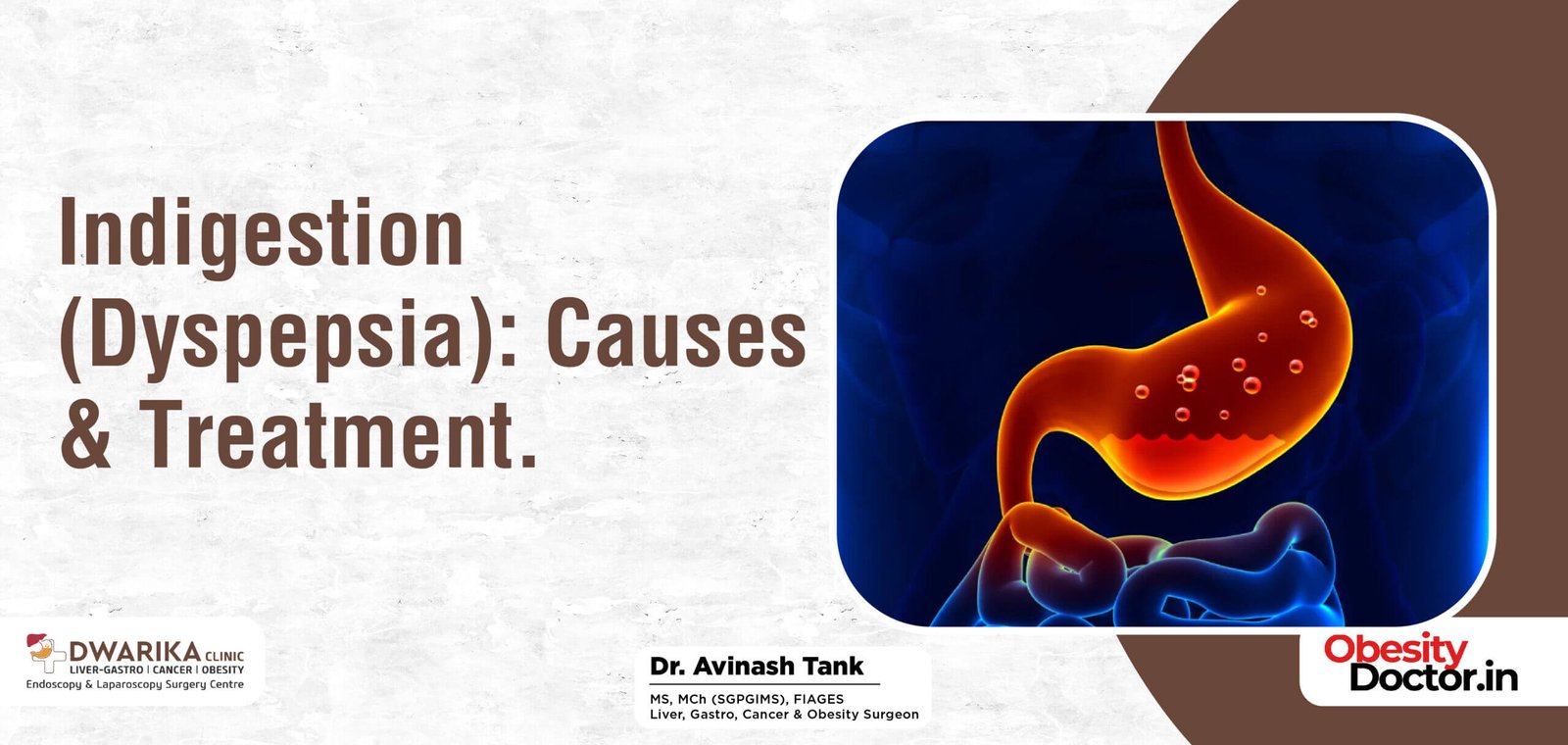
Reading Time: 2 minutes
Indigestion (Dyspepsia): Causes & Treatment.
Indigestion, also known as dyspepsia, is a digestive disorder that can disrupt your well-being.
According to one study, it’s prevalent in 8-50% Indian population.
Definition of Indigestion
Indigestion, or dyspepsia, refers to discomfort or pain in the upper abdomen. It often involves a feeling of fullness, bloating, or burning in the chest, which can occur during or after eating.
Types of Indigestion
Ulcer Indigestion:
Linked to stomach ulcers and characterized by persistent pain.
Reflux Indigestion:
Occurs when stomach acid flows back into the esophagus, leading to heartburn.
Functional Dyspepsia:
No identifiable cause, but symptoms like pain, bloating, and fullness are present.
Gastritis-Related Indigestion:
Resulting from stomach lining inflammation.
Common Causes of Indigestion
Indigestion can stem from various factors:
Overeating:
Consuming excessive amounts of food.
Spicy or Fatty Foods:
These can irritate the stomach lining.
Stress and Anxiety:
Emotional factors can trigger indigestion.
Medications:
Certain drugs may lead to digestive discomfort.
Underlying Conditions:
Gastroesophageal reflux disease (GERD), ulcers, or gallbladder disease.
Diagnosis of Indigestion
Diagnosing indigestion may require a medical evaluation, which can include discussing symptoms, reviewing your medical history, and undergoing tests like endoscopy, X-rays, or blood tests to identify underlying causes.
Treatment for Indigestion
Treatment options depend on the underlying cause and may include:
- Lifestyle Changes: Eating smaller meals, avoiding trigger foods, and managing stress.
- Medications: Antacids, proton pump inhibitors (PPIs), or H2-receptor antagonists.
- Managing Underlying Conditions: Treating the root cause, such as GERD or ulcers.
Prevention of Indigestion
Preventing indigestion involves adopting a few lifestyle adjustments:
- Dietary Choices: Opt for balanced meals and avoid trigger foods.
- Portion Control: Practice mindful eating to prevent overeating.
- Stress Management: Engage in stress-reduction techniques like meditation or yoga.
When to Consult a Doctor
Consult a healthcare provider if:
- Indigestion persists despite lifestyle changes.
- It is accompanied by severe pain or bleeding.
- You experience unintended weight loss.
- New symptoms appear suddenly.
Conclusion: Indigestion (Dyspepsia): Causes & Treatment
Indigestion is a common ailment that can disrupt your daily life, but it’s often manageable with the right approach.
Understanding its types, causes, and treatment options empowers you to take control of your digestive health.
If indigestion becomes persistent, severe, or concerning, seeking medical guidance ensures timely diagnosis and effective management.
